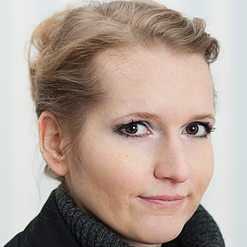About
The “Making A Real Connection: Pro-Social Collaborative Play in Extended Realities – Trends, Challenges and Potentials” is a one-day workshop that aims to bring together researchers, practitioners, and designers to promote interdisciplinary exchange in the field of human-computer interaction, XR games and collaborative approaches. The workshop will consist of a combination of presentations, group work, and discussion sessions to identify possible trends, potentials, best practices, and challenges, especially with focus on pro-social and cooperative interactions.
This workshop will serve as a starting point for mapping the design and research landscape in this area and will offer a discussion about challenges and trends for the future. We hope through this workshop to build a network of researchers interested in collaborative XR games, to encourage continued discussions, and to lay a foundation for future work in this area.
It will be held at MUM2023 the 22nd International Conference on Mobile and Ubiquitous Multimedia taking place in Vienna, Austria on December 3th — 6th. The exact date of the workshop will be announced soon.
Program
| 9:00am – 9:15am | Opening and Introduction |
| 9:15am – 10:30am | Presentations: Designing XR Games that Bring us Closer: A Workshop to Combine Game Design and Psychological Determinants of Closeness Eva Licht, Cordula Baur, Franzisca Maas, Tamara Friedenberger, Fabian Hemmert and Jörn Hurtienne Staying in Touch with Friends, Family and Partners at a Distance through Social Activities in VR – but which Activities are Desired? Laura Simon, Lina Klass and Eva Hornecker Technological Challenges of Ambient Serious Games in Higher Education Lea C. Brandl, Börge Kordts and Andreas Schrader Sensory Room Emulation As VR Game: A Demo Paper Katie Potts and Mohammed Bahja LINA – A Social Augmented Reality Game for Sense of Belonging in the Classroom Gloria Mittmann Creating an Ethical Framework for “Augmented Social Play” – a Gamified Digital Mental Health Intervention for Adolescents Wanda Spahl |
| 10:30am – 11:00am | Coffee Break |
| 11:00am – 12:30pm | Opportunities & challenges |
| 12:30pm – 2:00pm | Lunch |
| 2:00pm – 3:30pm | Group Work: Best practices and design principles |
| 3:30pm – 4:00pm | Coffee Break |
| 4:00pm – 5:00pm | Cross-group Discussion |
| 5:00pm – 5:30pm | Wrap Up |
Call For Participation
The workshop welcomes 2- to 6-page position papers or 1- to 2-page game demo papers in the ACM Primary Article Template (single column) on or before October 28th, November 5th 2023 (AoE) via EasyChair.
Submissions are invited on, but not limited to, the following topics:
- User requirement analysis for improving collaborative XR game experiences
- Design concepts and showcase of XR games applications to support collaboration
- Use cases that describe collaborative XR games in practice
- Evaluation methods for assessing collaborative XR games experience
- User studies on collaborative XR games
- New interaction approaches for collaborative XR games
Important Dates
- Paper Submission:
October 28th, November 5th 2023 (AoE)
- Author Notification:
November 11thNovember 16th, 2023 (AoE)
Each submission will be peer-reviewed by at least two of the workshop organizers (and, if required, additional experts) and will be selected based on quality and relevance to the workshop themes.
At least one author must attend the workshop and all participants have to register for the conference.
Organizers
The organizing team is a group of international experts who have different and complementary experiences and expertise in human-computer interaction, psychology, games research, and game design. The team is currently working together on the Horizon Europe project ASP-belong, which centers around developing Augmented Social Play, which is a collaborative AR experience that aims to strengthen the sense of belonging of groups of adolescents and so boost their mental health.

Simone Kriglstein is an associate professor at Masaryk University, as well as a scientist at the Austrian Institute of Technology. She specializes in designing and evaluating user interfaces and interaction methods in different fields, including games. Her work has been published in international conference proceedings such as the Proceedings of the SIGCHI Conference on Human Factors in Computing Systems and journals like Computer & Graphics and Computers in Human Behavior.

Gloria Mittmann is a psychologist and researcher at the Karl Landsteiner University of Health Sciences. Her research interests are in social psychology and mental health with a focus on digitalisation and serious games. Her work mainly revolves around developing digital interventions for improving mental health and social connectedness. Her work has been published in international conference proceedings and journals (e.g. Proceedings of the ACM on Human-Computer Interaction).

Adam Barnard is a playwright, theatre director and immersive experience designer. He is writer and creative director of the social augmented reality game LINA and non-academic lead on the EU Horizon project ASP-belong.

Kate Woodcock is a reader (associate professor) in the School of Psychology at the University of Birmingham. Her group’s research focuses on supporting disadvantaged young people’s mental health and well being. It does this through theoretical work and through the development of psychotherapeutic intervention strategies linked to that theory. The group’s work has a strong collaborative ethos. Kate is the scientific coordinator of the Horizon Europe project ASP-belong.
Programm Commitee
- Tamanna Malhotra – University of Birmingham
- Nyareso Mokaya – University of Birmingham
- Valeria Motta – University of Birmingham
- Vinaya Rajan Tawde – Masaryk University
Acknowledgments
The workshop is part of the Horizon Europe Cluster 1 – Health as part of the ASP-belong project (project number: 101080665).
